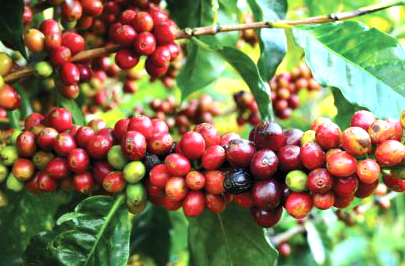
Every cup of coffee has a story — one that begins long before it reaches your mug.
From a small seed in tropical soil to the aromatic brew we enjoy each morning, coffee passes through ten essential stages.
Let’s explore each step that transforms a tiny bean into one of the world’s most loved beverages.
🌱 1. Planting the Coffee Seed
Coffee starts as a seed, often called a coffee cherry seed.
Once planted, it takes 2–4 years for a coffee tree to produce its first harvest.
Young plants need:
- Rich, fertile soil
- Regular rainfall
- Mild temperatures (15–24°C)
- Partial shade from larger trees
Most coffee grows in the “Coffee Belt” — a tropical region between the Tropics of Cancer and Capricorn.
🌿 2. Coffee Growing and Maturing
As coffee trees grow, they require careful pruning, fertilization, and pest control.
The trees develop glossy green leaves and clusters of small white flowers.
Each flower becomes a coffee cherry, which takes about 9 months to ripen.
The cherries change from green to bright red — the perfect signal for harvest.
🍒 3. Harvesting the Coffee Cherries
Harvesting occurs once or twice a year, depending on the region.
Farmers use two main methods:
- Hand Picking: Selects only ripe cherries — ensures higher quality.
- Strip Picking: Removes all cherries at once — faster but less precise.
Selective hand-picking is common for specialty coffees, where consistency and ripeness are key.
💧 4. Processing the Coffee Cherries
After harvesting, the cherries must be processed quickly to prevent spoilage.
There are three main processing methods:
- Wet (Washed) Process: Cherries are pulped, fermented, and washed for clean, bright flavor.
- Dry (Natural) Process: Whole cherries dry under the sun, creating sweet, fruity notes.
- Honey (Semi-Dry) Process: Some mucilage remains, combining sweetness and clarity.
The chosen method has a huge impact on the final cup profile.
🌤️ 5. Drying the Beans
Whether wet- or dry-processed, beans must be dried to a 10–12% moisture level.
This step usually takes:
- 7–15 days under sunlight on raised beds or patios
- Or less time in mechanical dryers during wet seasons
Proper drying prevents mold and preserves flavor integrity.
🏡 6. Milling the Coffee
Before export, the dried beans (called parchment coffee) are milled to remove outer layers.
Milling includes:
- Hulling: Removes the dried parchment or fruit layer.
- Polishing (optional): Enhances appearance.
- Grading & Sorting: Beans are separated by size, weight, and color to ensure uniformity.
High-quality lots are packed in jute bags and prepared for shipping.
🚢 7. Exporting the Green Coffee
Now called green coffee beans, they’re shipped from producing countries to roasters worldwide.
Beans are stored in climate-controlled warehouses and transported by sea in 60–70 kg sacks or larger bulk containers.
Proper storage and handling are essential to prevent moisture and odor absorption.
🔥 8. Roasting the Coffee Beans
Roasting transforms green beans into the aromatic brown beans we recognize.
At around 190–250°C (375–480°F), the beans expand, change color, and develop complex flavors.
The roast level — light, medium, or dark — determines the final taste:
- Light roasts: bright and acidic
- Medium roasts: balanced and sweet
- Dark roasts: bold and smoky
Roasting is where the coffee’s character truly emerges.
⚙️ 9. Grinding the Coffee
Roasted beans are ground to suit the brewing method.
Grind size affects extraction time and flavor balance:
- Coarse grind → French Press, Cold Brew
- Medium grind → Drip Coffee, Pour-Over
- Fine grind → Espresso, Moka Pot
Always grind fresh before brewing — oxidation starts minutes after grinding.
☕ 10. Brewing and Enjoying
Finally, the moment of truth — brewing your coffee!
Water quality, temperature, and brew ratio determine the outcome:
- Use fresh, filtered water at 90–96°C (195–205°F)
- Aim for a 1:15–1:17 coffee-to-water ratio
- Adjust grind, time, and technique for your taste
Serve immediately, inhale the aroma, and enjoy the journey that began as a tiny seed halfway across the world.
❤️ From Seed to Cup: A Journey of Passion
Every cup of coffee you drink represents months or even years of work — from farmers, processors, roasters, and baristas.
Each step in the journey adds value, shaping the flavor, aroma, and experience in your cup.
So next time you sip your favorite brew, remember the incredible process that brought it to life — from seed to cup. 🌍☕
DeliciousPath: Enjoyment in Every Moment
Explore the Gourmet on Board category for exquisite flavors that elevate your meals, even when you’re on a boat, and the Coffee category for aromatic coffee blends that make every moment special. DeliciousPath is here to turn every experience into something unforgettable!























